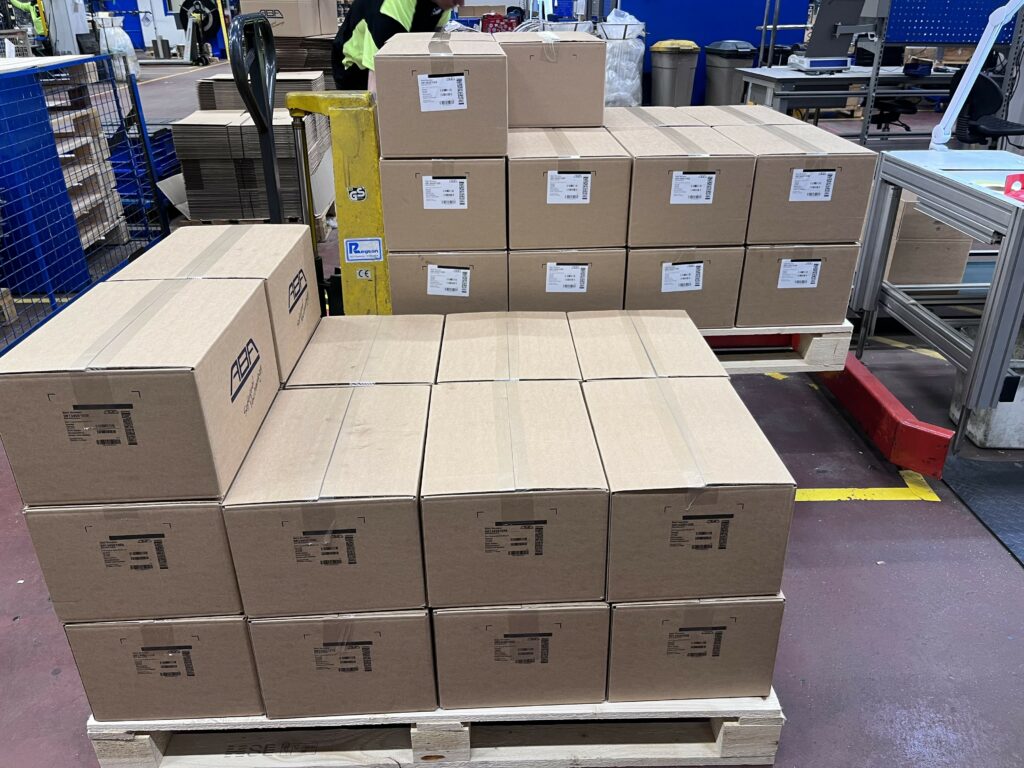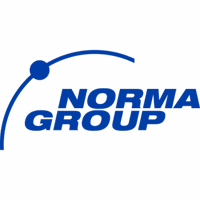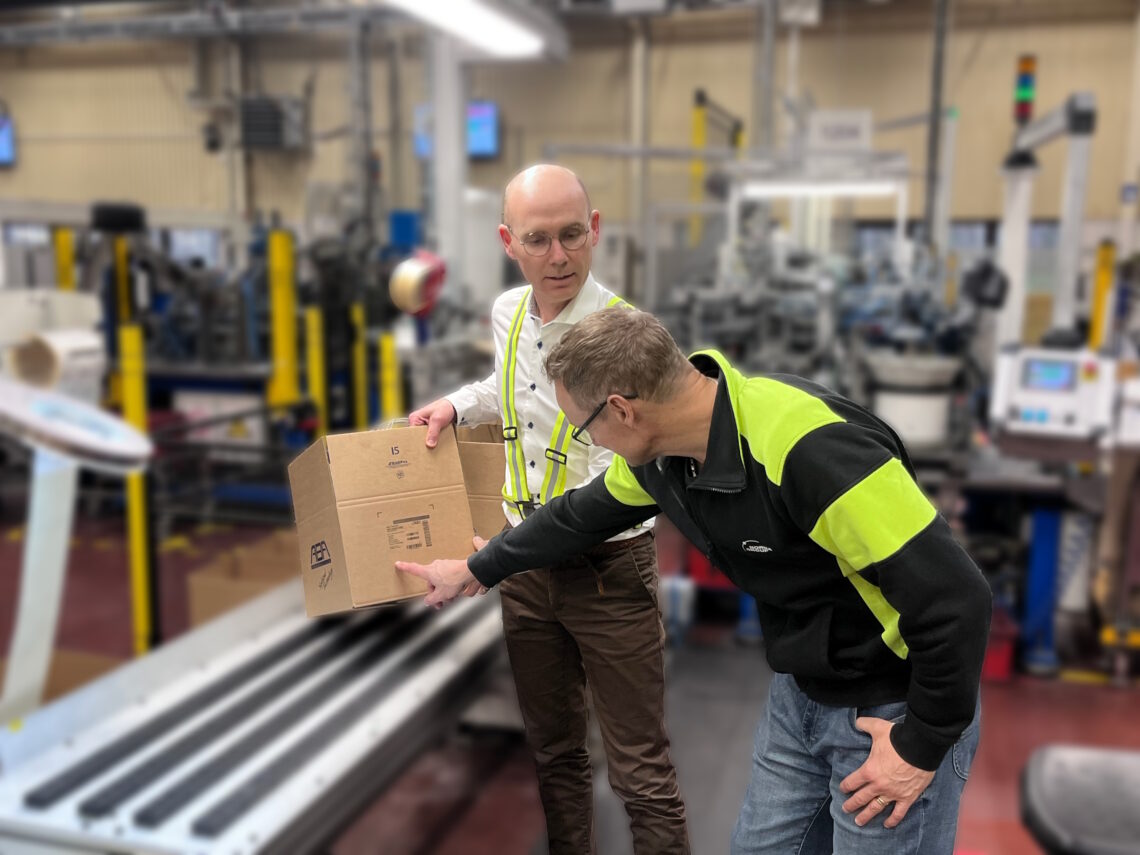This post is also available in: Deutsch
In our NORMAPeople series, employees around the world talk about their day-to-day work, how they came to the company and what they appreciate most about their jobs.
Ulrik Thelin has been working for NORMA Group for four years at our site in Anderstorp, Sweden. He has recently assumed the role of Senior Director of Strategy and Planning. In this interview, he talks about the principle of lean management, the benefits that come along with it and what motivates him.
Ulrik, can you tell us a little about your career at the company?
I started at NORMA Group as Managing Director of the Anderstorp site. In the summer of 2021, I was promoted to Operations Director FASTEN. During this time, I was responsible for several plants, including Portugal, UK, Sweden and the Czech Republic. I recently started in my new role as Head of Operational Strategy and Planning at a global level.
What are your tasks?
In our global operations team, I am responsible for strategy and planning. This means I am deeply involved in investment and business development initiatives. To be more specific it can be business allocation strategies to a specific region or plants. To develop synergies between our plants to maximize the use of the Group’s assets.
One project we are currently working on is replacing paper labels on our shipping goods with printed barcodes directly on the box. These are more environmentally friendly and are automatically applied.

You are a great believer in lean management. What exactly is lean management?
Lean management is a method that focuses on the creation of added value for the customer while simultaneously minimizing waste. It emphasizes continuous improvement, efficiency, increased value creation and the elimination of activities that do not add value in organizational processes.
“With lean management, everything revolves around our employees and processes.”
Key principles include identifying value from the customer’s perspective, mapping value streams, creating a flow in the work process, establishing a pull system based on customer demand and striving for perfection through continuous improvement. Lean management is all about our employees and processes.
What are the requirements for lean management?
The key element is understanding the culture and the people involved. There are, however, additional elements required for the successful implementation of lean management:
1. Leadership Commitment: Every cultural change requires the attention of management. The managers have to be fully committed to the lean principles and have to lead by example.
2. Employee Involvement: Employees at all levels need to be integrated into the process and empowered not only to contribute ideas but also to participate in continuous improvement activities.
3. Clear Visions and Objectives: A clear understanding of what the company aims to achieve with lean management is essential.
4. Training and Development: Employees must be trained to understand lean principles, tools, and techniques.
5. Cultural Transformation: A shift in culture to embrace change, continuous improvement and values customer needs.
6. Effective Communication: Transparent and frequent communication at all levels of the organization.
7. Continuous Improvement Mechanisms: Systems and processes for identifying inefficiencies and continuously implementing improvements.
8. Performance Measurement: Metrics and key performance indicators (KPIs) are used to track progress and identify areas for improvement. These KPIs include among other employee satisfaction, efficiency and the number of projects.
For me, these are the requirements and framework for lean management.
And what are lean management methods?
Basically, they are closely linked to the key elements just mentioned. The focus is not on the technical means themselves, but on how they are used in the processes and in practice. They are interconnected and are often used together to create a comprehensive approach to improving efficiency and reducing waste in an organization.
Effective implementation of these methods requires commitment from all levels of the organization combined with a corporate culture that promotes continuous improvement.
1. 5S – Sort, Set in Order, Shine, Standardize, Sustain: This method focuses on organizing the workplace with the goal of improving efficiency and reducing waste. It involves separating necessary and unnecessary items, organizing the workspace, cleaning it, standardizing procedures, and ensuring that these practices are maintained.
2. Kaizen – Continuous Improvement: Kaizen is a core principle of lean management that promotes continuous, step-by-step improvements in all areas of the company. It takes everyone into consideration, from managers to employees in production.
3. Value Stream Mapping: This tool helps to identify and eliminate waste in a process. The process involves mapping all steps of a process in order to visualize where delays, redundancies or activities that do not add value occur.
4. Kanban – Visual Workflow Management: Kanban uses visual boards and cards to manage work and workflows. It supports the understanding of the work process and helps to manage the flow of tasks.
5. Just-In-Time (JIT) Production: JIT focuses on the production and delivery of products in response to customer demand rather than in anticipation of any such demand. This method reduces storage costs and potential loss.
6. PokaYoke – Error Prevention: This method involves designing processes in a way that makes it technically impossible or difficult to make mistakes.
7. Total Productive Maintenance: Maintaining high-performing machines means looking after them instead of simply waiting for them to break down. This approach combines maintenance with lean principles to ensure that machines and systems are always in a condition that enables optimal production.
8. Reward Systems: This includes recognizing employees based on their performance and contributions to lean initiatives.
Why is lean management important – for NORMA Group and its employees?
There are a number of reasons why lean management is so critically important for both the company and its employees. It helps to increase employee satisfaction, efficiency, cost savings, a greater level of quality and an overall better working environment. It aligns the company’s goals with the growth and well-being of its employees, thereby establishing a symbiotic relationship that promotes success and development.
1. Increased Efficiency and Productivity: Lean management helps to avoid losses in processes, thus leading to more efficient workflows.
2. Cost Reduction: Lean management plays a part in reducing operating costs by minimizing waste and optimizing the use of resources.
3. Quality Improvement: Continuous improvement and error prevention lead to a greater level of product and service quality. This quality improvement not only satisfies customers, but also instills a sense of pride in employees.
4. Increased Customer Satisfaction: With a focus on added value for customers, lean management ensures that the company’s products meet or exceed customer expectations. Satisfied customers generate repeat business and positive recommendations, which in turn make a positive contribution to the company’s success.
5. Employee Empowerment and Engagement: Lean management encourages the participation of employees in solving challenges and improving processes. This participation boosts employee satisfaction, because employees feel that their efforts are valued and have a purpose.
6. Better Working Environment: The 5S method helps to create a cleaner, more organized and safer workplace, which has a positive impact on employee morale and productivity.
7. Professional Development: Employees in a lean environment often benefit from training that contributes to their professional development as well as the development of their skills.
8. Adaptability and Competitiveness: Lean companies are more flexible and able to react quickly to changes in the market. This adaptability not only benefits the company in terms of maintaining competitiveness, but also offers employees job security.
9. Teamwork and Collaboration: Lean management promotes a culture of teamwork and collaboration because it requires cross-functional cooperation to identify and eliminate waste. This collaboration results in a more harmonious and productive working environment.
What motivates you and keeps you going?
I am incredibly passionate about the transformational nature of business. It is only by diving deep into this process that I can truly understand the fundamentals of our company. My greatest sources of inspiration and motivation stem from collaboration and engagement with our team members.
“It is both gratifying and motivating when I can empower and support others in their roles so that they can perform their daily tasks with ease and excellence.”
My focus is clearly on people. It is not in my nature to tell other people what they should do. I work with them, want to educate them, and understand their thoughts and ideas. You must want the changes yourself. I hope that I can inspire more people to think: “Yes, that’s something interesting – something we can have”. Having a proactive and positive attitude makes the working world work better.
Besides work, what do you do in your free time?
In my spare time I enjoy playing golf, running, cycling and spending time with my family and our dog. I am a passionate road cyclist – you really get the best impressions of Sweden when you experience it from a bike.
What are your goals for the future?
I am excited to facilitate NORMA Group’s strategic development with our teams and to see people accomplish themselves in our company. On a personal note, my family is going through a transition as our kids are moving out of the house for their next phase in life.




